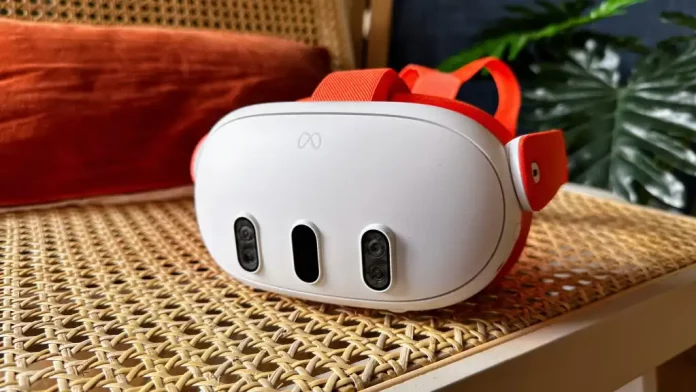It’s uncommon for corporations to discuss extensively about things before they release them, but that’s exactly what occurred with the Meta Quest 3, which was largely shown earlier this year.
Meta (Facebook’s parent company) has decommissioned the Oculus brand, which it acquired in 2014, and is instead selling virtual reality devices under the Meta brand.
The most important news, and the reason for the price rise over the Quest 2, is that the new headset enables mixed reality. That doesn’t imply you have to be in a completely synthetic world: new cameras on the front of the headset allow you to see your surroundings in color and ‘augment’ reality with virtual objects.
You could play a virtual game in your living room (such as the amazing BAM! ), or you might watch TV on a massive virtual screen. The difference, in case you’re wondering, is that you can still see your real side table, allowing you to pick up a glass and have a drink without having to remove the headset, which wasn’t really feasible with the Quest 2.
While certain facts were previously known, Meta has now revealed everything from technical specifications to full pricing and availability.
When will the Meta Quest 3 go on sale?
- Release date: 10 October 2023
The Quest 3 will be officially introduced at Meta Connect on September 27, 2023, and will go on sale on October 10, 2023.
However, you may pre-order a Quest 3 from the official Meta Store, as well as other retailers such as Amazon, Currys, and Argos in the United Kingdom.
When Meta originally teased the Meta Quest Pro in 2021, many expected it would be the Quest 2’s successor. Of course, we now know that it’s a whole new headset with a purpose other than gaming.
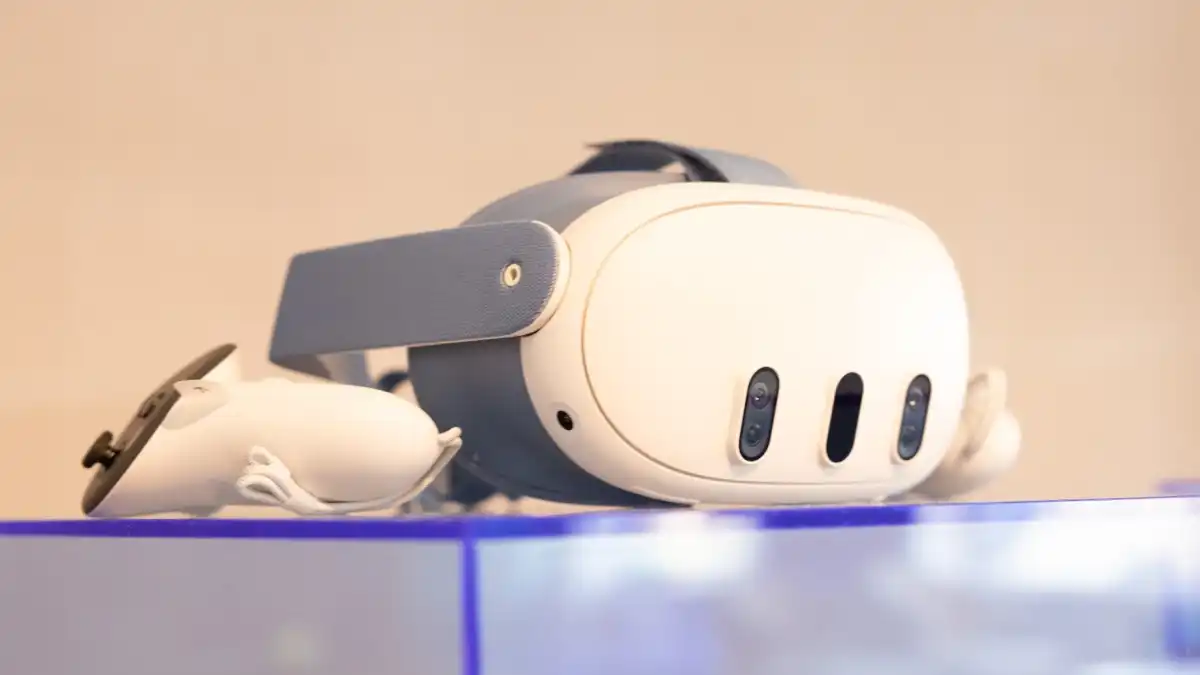
How much does the Meta Quest 3 cost?
There are two storage capacities: 128GB and 512GB.
The base model costs $499 / £479, while the 512GB one is $649 / £619.
This is a step up from the Meta Quest 2, which is now back to its original $299/£299 pricing after dropping from $399/£399 on June 4, 2023.
The Quest 3 will be offered in all 23 countries where the Meta Quest 2 is now sold.
You’ll also get Asguard’s Wrath 2 and, if you choose the 512GB model, a six-month membership to Meta Quest+.
Accessories such as the Elite Strap (£69.99), Silicone Facial Interface (£39.99), and Active Straps with TouchPlus controller (£39.99) are also available. The Elite Strap with Battery (£129.99), prescription lenses (£49.99), charging port (£129.99), and travel bag (£69.99) are also available.
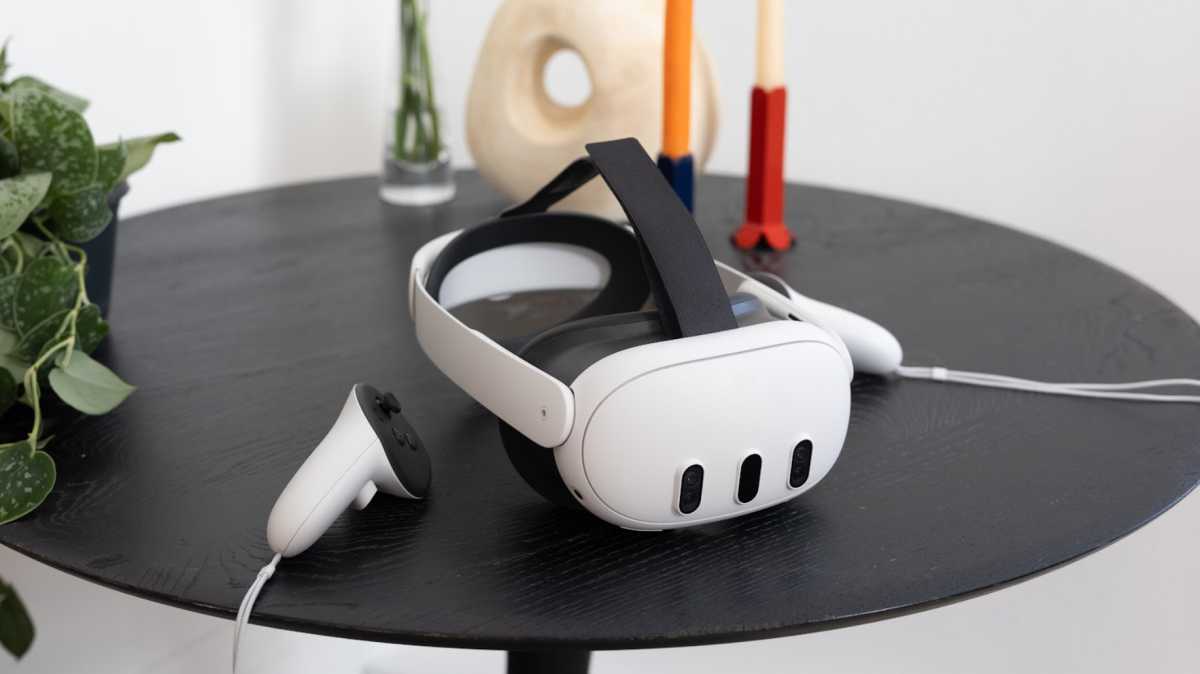
What are the Quest 3 specs and features?
Here is the official video reveal for the Meta Quest 3 – we’ve broken down what Meta has announced on the technical specs below:
Upgraded design
Aside from the inclusion of color cameras to allow mixed reality, the major difference between the Meta Quest 3 and its predecessor is that it is 40% smaller owing to 40% thinner lenses. Unfortunately, the weight has increased somewhat from 503 to 515g (17.7 to 18.1oz).
The IPD wheel, which lets you to change the distance between the displays while wearing the headset, is also returning, and the range is wider than previously, allowing for pupils between 53 and 75mm apart.
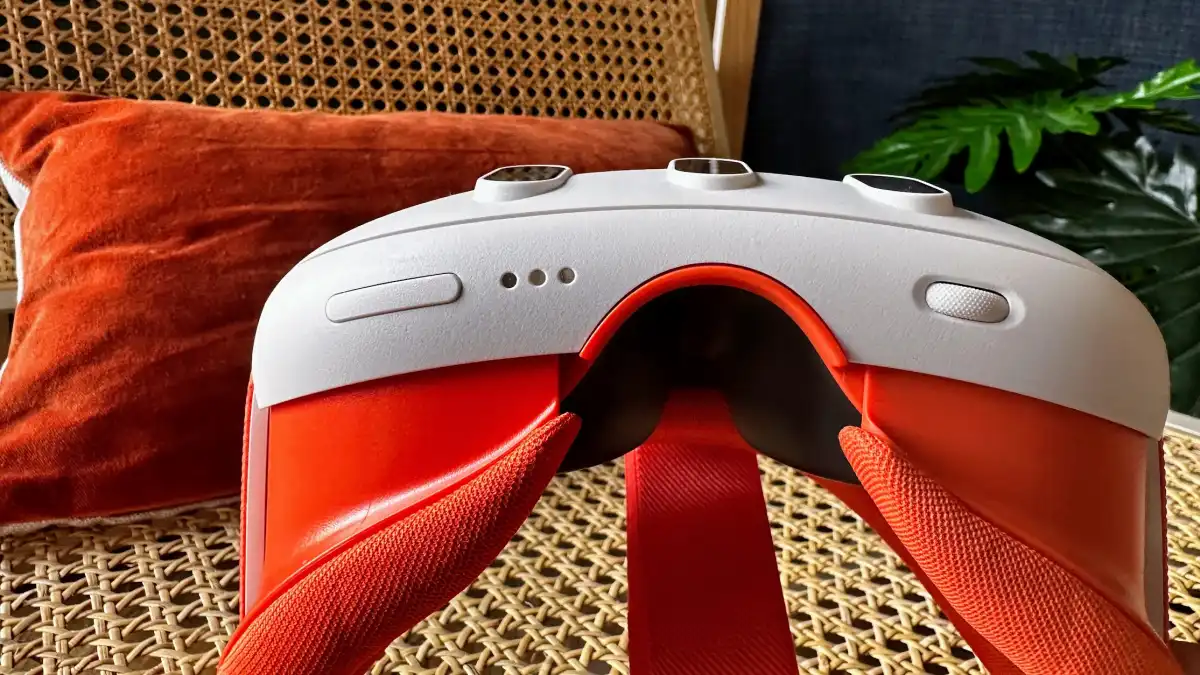
Plus, you can adjust how far the screens are from your eyes without needing the separate spacing insert you got with the Quest 2. That means the Quest 3 still fits comfortably even if you wear glasses.
The controllers have been updated and no longer have tracking rings. Effectively, they’re cut-down versions of the Quest Pro controllers and have “TruTouch” haptics which aim to make it feel more realistic when you interact with objects.
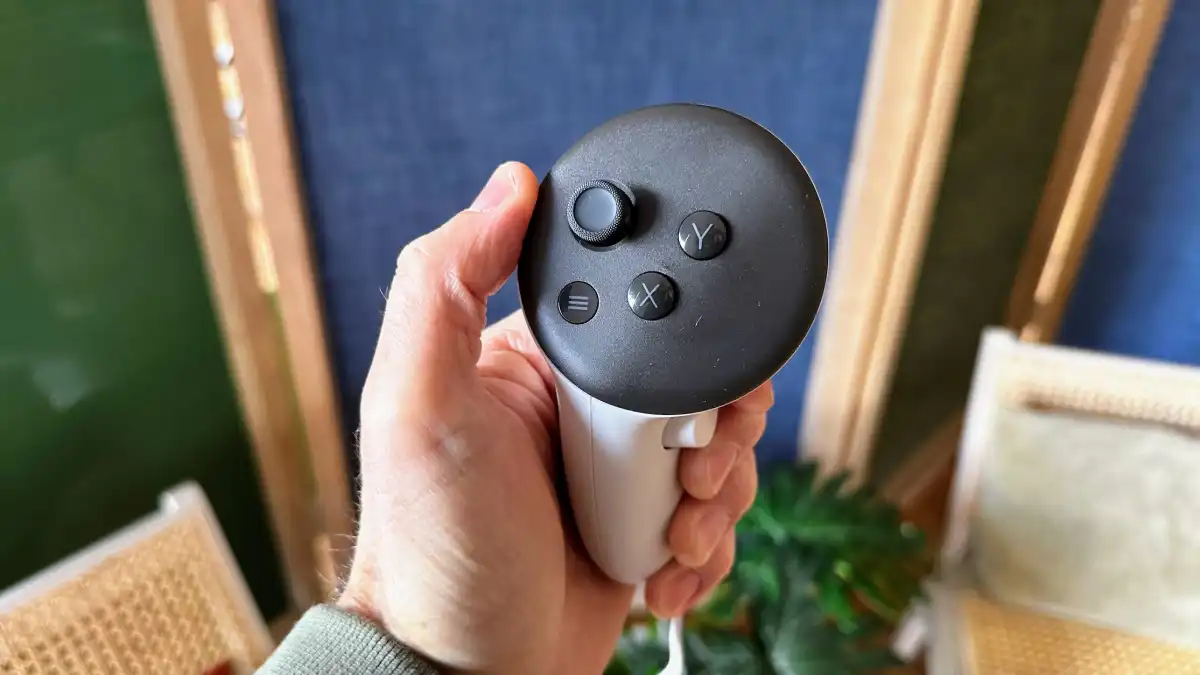
Because they don’t have the outside tracking rings, they’re more compact and don’t collide when you move your hands close together or cross them over.
Audio is not overlooked. The built-in speakers are 40% louder and have better bass. However, if you wish to use your own wired headphones, there is a 3.5mm minijack output.
Improved performance
The Meta Quest 2 ran on Qualcomm’s Snapdragon XR 2 chipset, which delivered the usual strong standalone performance.
With the Quest 3, Meta and Qualcomm have extended their partnership, with the Snapdragon XR2 Gen 2 CPU giving double the graphics performance.
And this is required due to the enhanced displays, which I’ll discuss in a moment. However, it also implies graphics enhancements such as considerably more realistic shadows.
One rumour that did not pan out was an increase to 12GB of RAM. Instead, the Quest 3 only has 8GB, which is just 2GB more than the Quest 2.
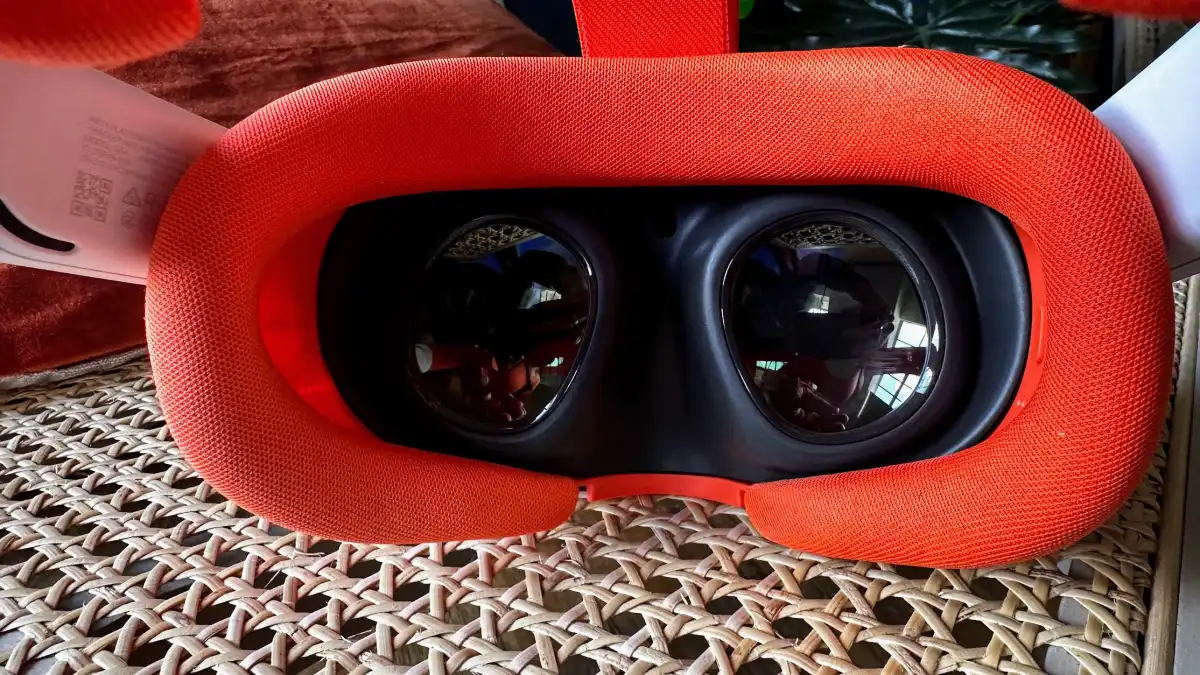
Updated LCD displays
Meta had already stated that the Quest 3 would have the “highest resolution display and pancake optics,” but we now know that this means a resolution of 20642208 per eye and an increased 120Hz refresh rate, which is currently “experimental,” just like the Quest 2, which has also offered an experimental 120Hz mode for a few months. It is only available in applications and games that support it, with Meta Home and other OS features remaining at 90Hz. The increase to 120Hz will result in a noticeable increase in smoothness regardless of where you use the headset.
It’s worth mentioning that the resolution and refresh rate of the Quest 3 are both faster than the top-tier Quest Pro.
The last significant point to mention is that the Quest 3’s 110° horizontal and 90° vertical viewing angles allow you to see roughly 15% more than the Quest 2, giving you a considerably less limited feeling than the previous headset.
Mixed reality
Apple has really pumped up augmented reality this year by unveiling its Vision Pro headset at WWDC. Regardless of how delighted fans are, the headgear won’t be available for a while and will cost hundreds of dollars. The Quest 3 now delivers a comparable experience at a fraction of the cost.
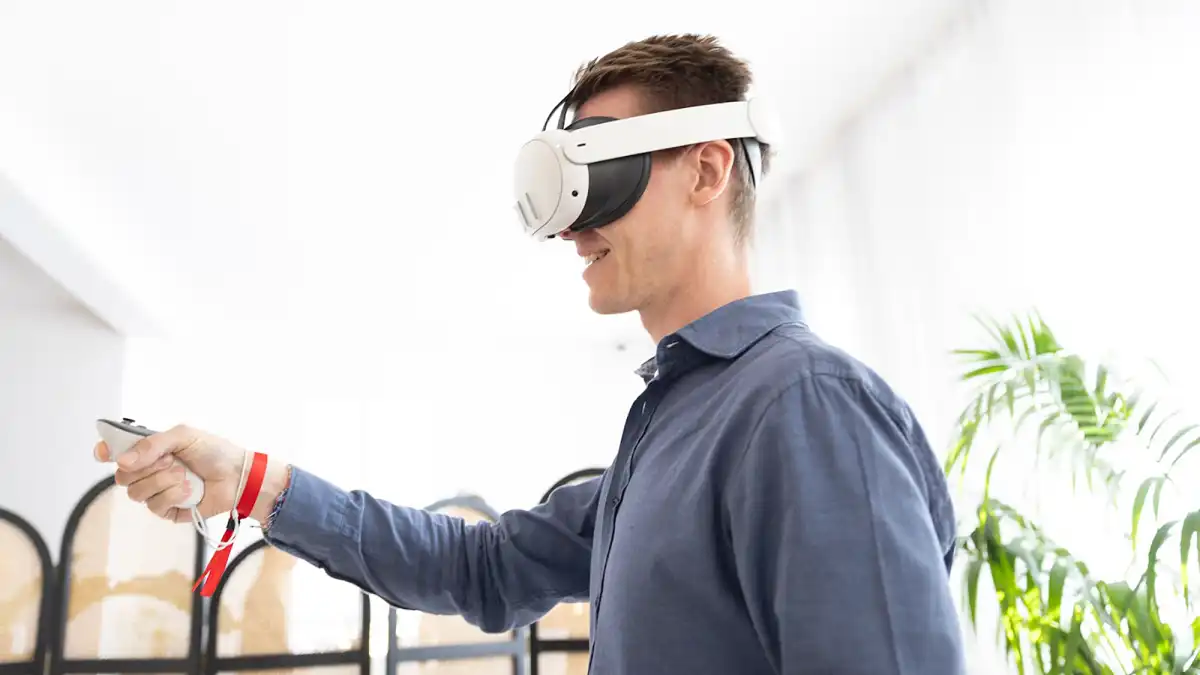
Whether you call it augmented or mixed reality, it means you can see a fairly lifelike version of your surroundings using the external cameras built into the headset and play virtual board games on your kitchen table, or blast away parts of your walls and ceiling when playing games like Meta’s own First Encounters (a fantastic follow-up to the original Oculus Rift’s First Contact).
Games may also progress from mixed reality to complete virtual reality… and then back again.
However, when compared to the Quest Pro, the Quest 3 misses two features: eye and facial tracking. It does, however, offer hand tracking, so you don’t have to hold the controllers in order to play every game or utilize the main interface.
Quest 3 specs
- Dimensions: 184 mm x 160 mm x 98 mm
- Weight: 515g / 18.1oz
- Sensors: Six cameras, plus wireless inside-out SLAM tracking with six degrees of freedom
- Optics: 4K+ Infinite Display (2x LCD displays with 2064×2208 pixels), 90 / 120Hz
- Storage: 128GB / 512GB
- Processor: Qualcomm Snapdragon XR2 Gen 2
- Audio: Stereo speakers with 3D spatial audio
- Mixed reality: 2x RGB cameras with 18 ppd + depth projector
- IPD adjustment wheel: From 53-75mm
- Controllers: Each 126x67x43mm, 126g (powered by single AA battery)
- Battery life: Up to 2.2 hours (average)
- Charging time: 2 hours with included 18W adapter
- Connectivity: Wi-Fi 6E, Bluetooth 5.2
- Playspace: Stationary or Roomscale supported. Roomscale requires a minimum of 6.5 feet x 6.5 feet of obstruction-free floor space
- PC-based VR: Supports Meta Quest Link cable and Air Link.


